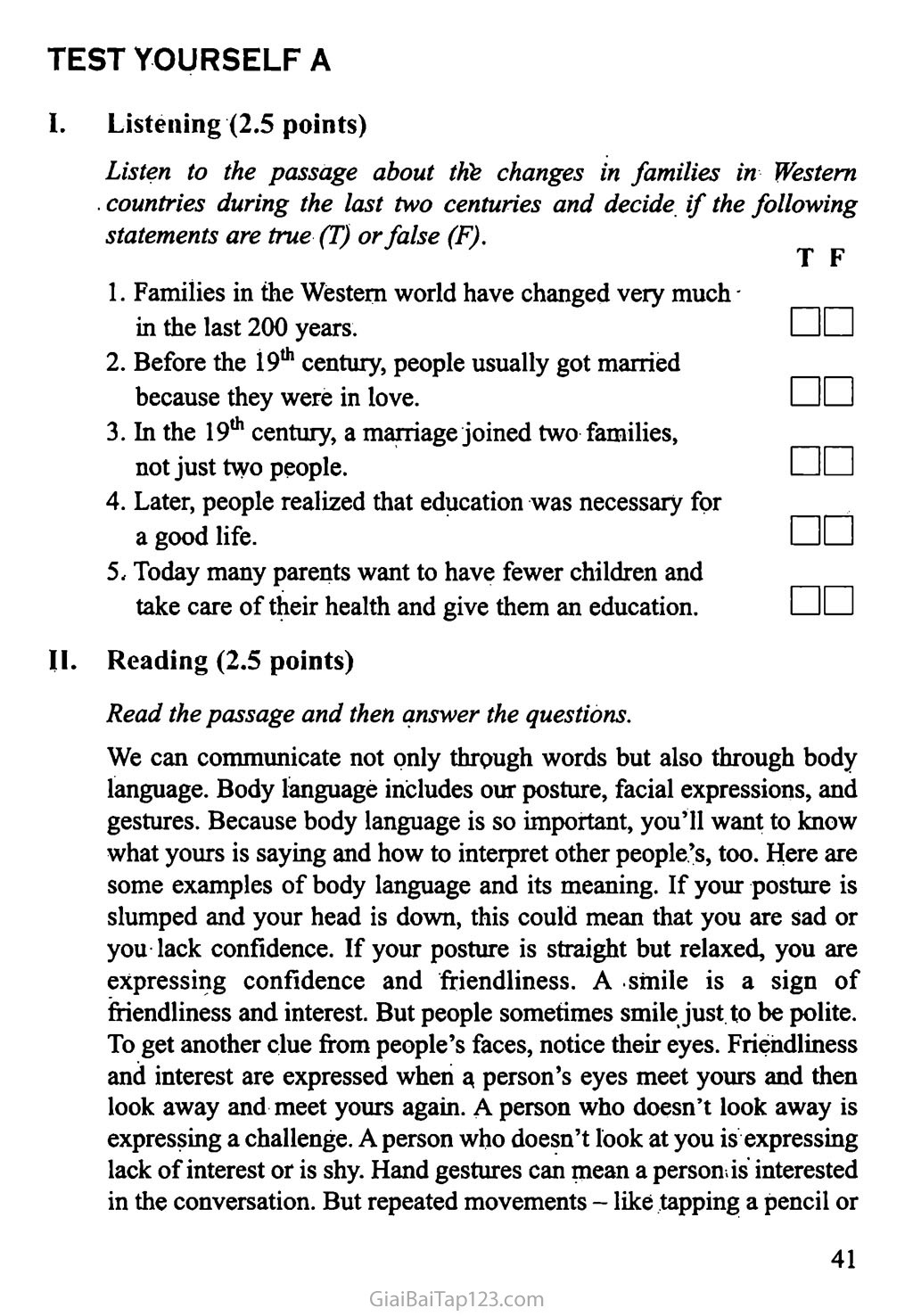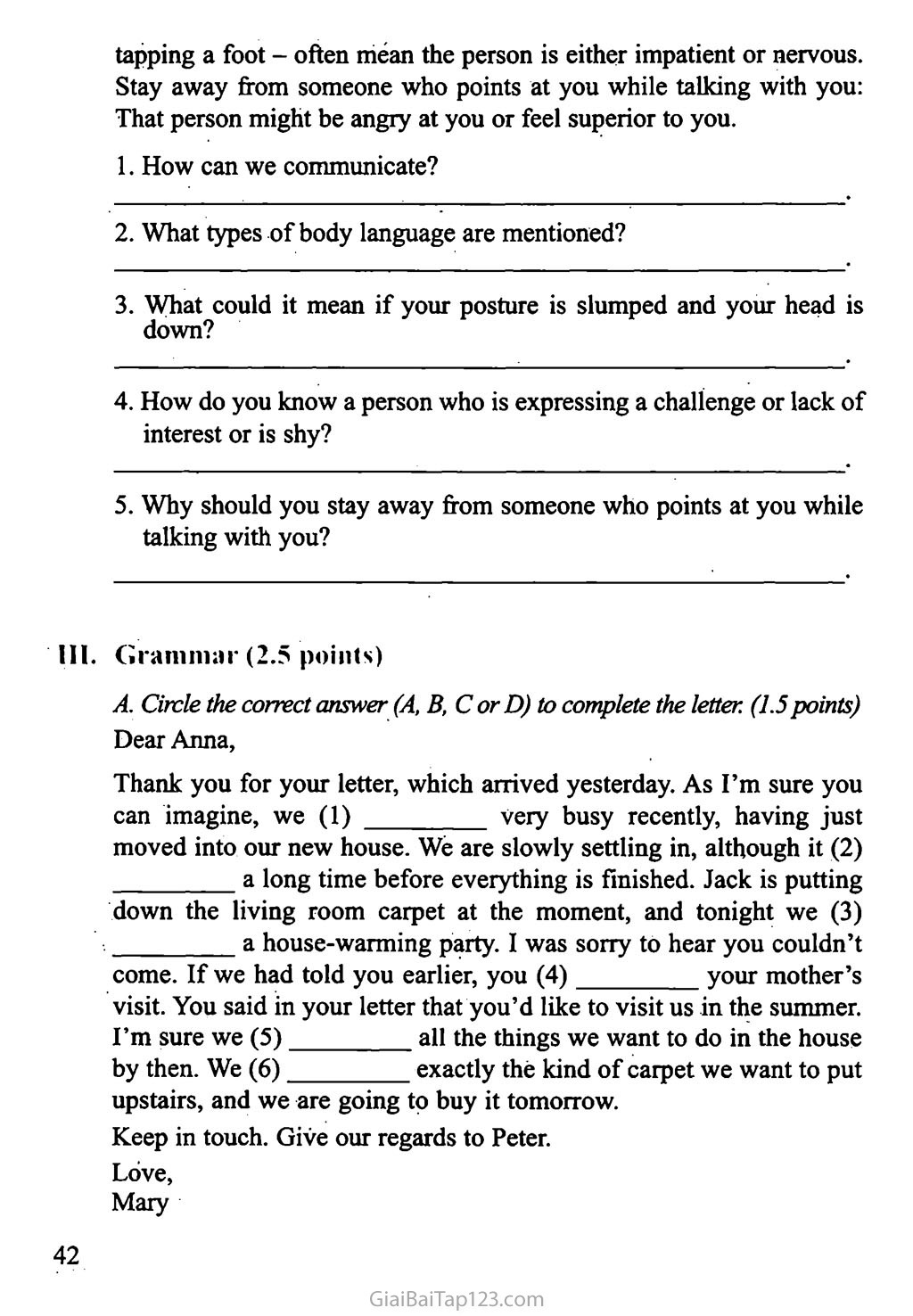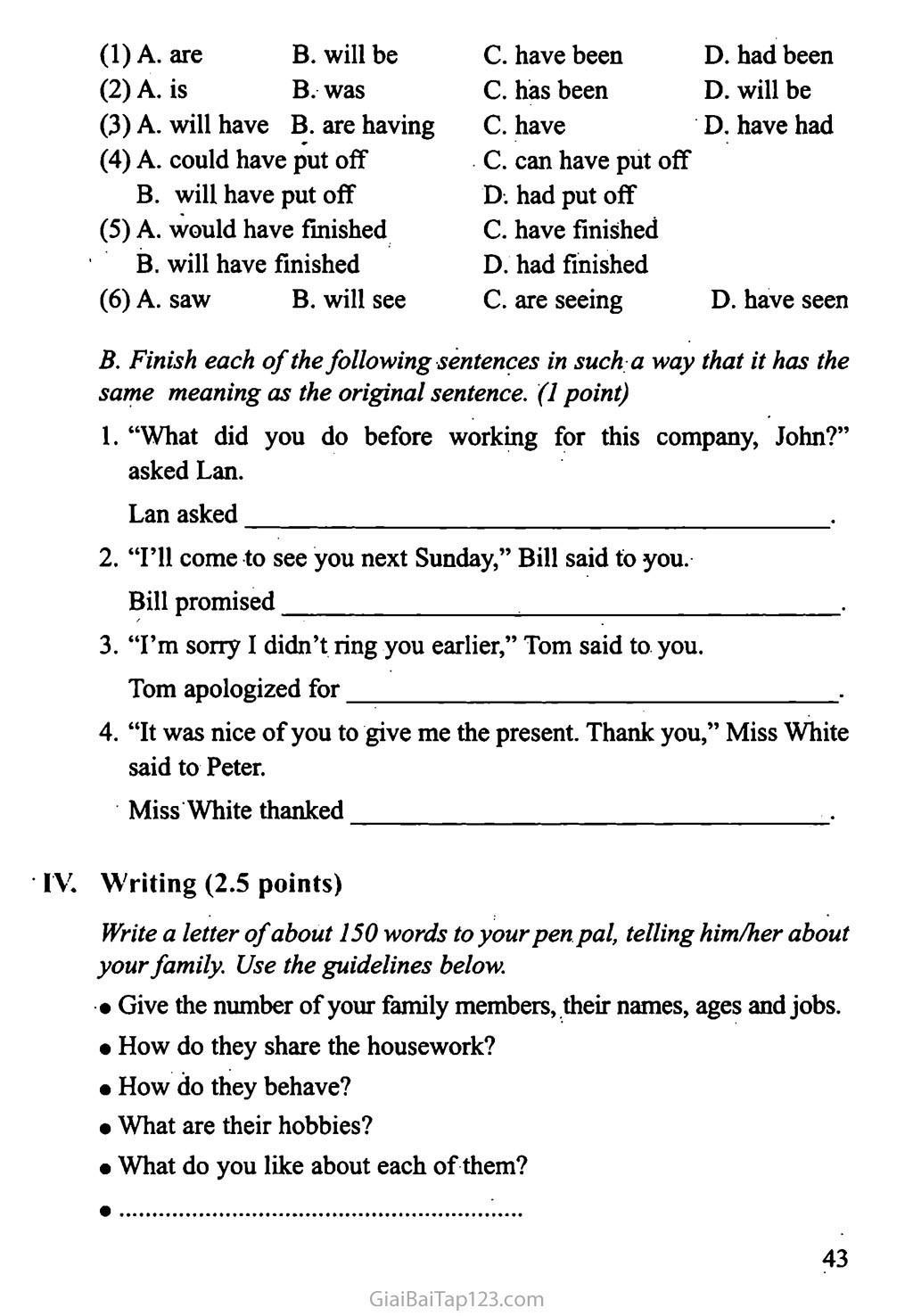SGK Tiếng Anh 12 - TEST YOURSELF A
TEST YOURSELF A Listen to the passage about the changes in families in Western countries during the last two centuries and decide if the following statements are true (T) or false (F). Families in the Western world have changed very much Read the passage and then answer the questions. We can communicate not only through words but also through body language. Body language includes our posture, facial expressions, and gestures. Because body language is so important, you’ll want to know what yours is saying and how to interpret other people’s, too. Here are some examples of body language and its meaning. If your posture is slumped and your head is down, this could mean that you are sad or you lack confidence. If your posture is straight but relaxed, you are expressing confidence and friendliness. A smile is a sign of friendliness and interest. But people sometimes smile just to be polite. To get another clue from people’s faces, notice their eyes. Friendliness and interest are expressed when a person’s eyes meet yours and then look away and meet yours again. A person who doesn’t look away is expressing a challenge. A person who doesn’t look at you is expressing lack of interest or is shy. Hand gestures can mean a person is interested in the conversation. But repeated movements - like tapping a pencil or tapping a foot - often mean the person is either impatient or nervous. Stay away from someone who points at you while talking with you: That person might be angry at you or feel superior to you. How can we communicate? What types of body language are mentioned? What could it mean if your posture is slumped and your head is down? How do you know a person who is expressing a challenge or lack of interest or is shy? Why should you stay away from someone who points at you while talking with you? A. Circle the correct answer (A, B, c or D) to complete the letter. (1.5points) Dear Anna, Thank you for your letter, which arrived yesterday. As I’m sure you can imagine, we (1) very busy recently, having just moved into our new house. We are slowly settling in, although it (2) a long time before everything is finished. Jack is putting down the living room carpet at the moment, and tonight we (3) a house-warming party. I was sorry to hear you couldn’t come. If we had told you earlier, you (4) your mother’s visit. You said in your letter that you’d like to visit US in the summer. I’m sure we (5) all the things we want to do in the house by then. We (6) exactly the kind of carpet we want to put upstairs, and we are going to buy it tomorrow. Keep in touch. Give our regards to Peter. Love, Mary A. A, A A are B. will be is B. was will have B. are having B. A B. A could have put off will have put off would have finished will have finished saw B. will see c. c. c. c. D c. D c. have been has been have can have put off had put off have finished had finished are seeing had been will be have had D. have seen B. Finish each of the following sentences in such a way that it has the same meaning as the original sentence. (1 point) “What did you do before working for this company, John?” asked Lan. Lan asked . “I’ll come to see you next Sunday,” Bill said to you. Bill promised . “I’m sorry I didn’t ring you earlier,” Tom said to you. Tom apologized for . “It was nice of you to give me the present. Thank you,” Miss White said to Peter. Miss White thanked . IV. Writing (2.5 points) Write a letter of about 150 words to your pen pal, telling him/her about your family. Use the guidelines below. Give the number of your family members, their names, ages and jobs. How do they share the housework? How do they behave? What are their hobbies? What do you like about each of them?



